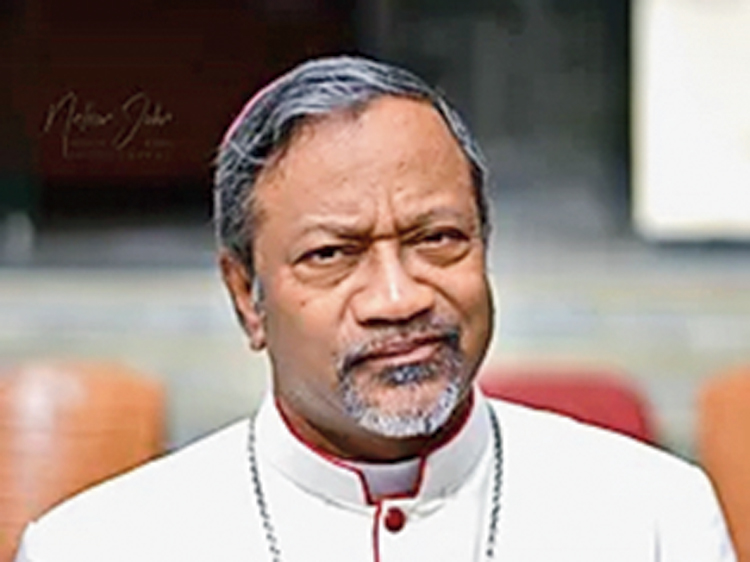The metropolitan archbishop of Bangalore on Thursday appealed to the central government not to grant citizenship based on religion but only “on the merit of each individual case”, in his first reaction since protests erupted across the country over the controversial citizenship act.
Archbishop Peter Machado, who is also the president of the All Karnataka United Christian Forum for Human Rights, submitted his appeal in the form of a memorandum to the President and the Prime Minister through Karnataka governor Vajubhai Vala.
Machado addressed a news conference before heading to the Raj Bhavan, accompanied by priests from several denominations of the Christian community in the state.
“We are appealing to the central government not to grant citizenship on the basis of religion but (only) on the merit of each individual case,” he said, making it clear that excluding one religion for granting citizenship was not in keeping with India’s inclusive tradition.
The Citizenship (Amendment) Act (CAA) essentially fast-tracks citizenship to non-Muslim refugees from Pakistan, Bangladesh and Afghanistan.
“Let not religion be the criterion for deciding on citizenship. If they are worthy, let all the people get citizenship, but not on the basis of religion,” he said.
“This is a civilization of being together, tolerance, mercy and compassion, especially for the minority community and those who are suffering. May this tradition continue.”
The archbishop dismissed suggestions that the Christian community was being soft either on the act or two other controversial measures — the National Register of Citizens and the National Population Register — the government plans to roll out across the country.
“We didn’t want to contribute to the general confusion by saying something. We are a peace-loving people,” he said in response to a question. “We don’t rush into anything. We will join (the debate) when we are convinced. We will give our statements when it is necessary.”
He said Cardinal Oswald Gracious, the metropolitan archbishop of Mumbai and president of the Catholic Bishops Conference of India, had already spoken on the matter.
Machado’s memorandum mentions what the cardinal had said late last month, weeks after the citizenship bill received the President’s assent on December 12.
The cardinal had said there was a “danger that there could be a polarisation of our peoples along religious lines”, which would be “very harmful for the country”.
Another high-ranking priest, Major Archbishop Maria Soosa Pakiam of the Latin Rite Archdiocese of Thiruvananthapuram, too had called the CAA “discriminatory”, days after it was enacted.
Machado did not agree with Prime Minister Narendra Modi’s contention that the CAA had nothing to do with existing citizens and that the act had been misunderstood.
“I am not very sure because a large number of people have spoken against it. There are learned people among us who have expressed their opinions,” he said. “Are they so ignorant?”
Although the memorandum did not mention the NRC and the NPR, Machado made it clear they too had “implications”.
“There are implications in them as people would suffer. The population register cannot be made on an oral basis, but only on the basis of documents. And India is a country where we have an oral tradition. We believe each other, we trust each other. The people, especially the poor, will be in great trouble to get documents,” he said.
“So there are implications of that sort because of which the government has to be sensitive and give special consideration to our Indian population.”
The memorandum has urged the Centre to consider withdrawing the act. “There is no harm in backtracking: changing course if this is necessary for the good of the country and our people,” it says.
“By doing so we can mete out justice to all the illegal migrants and thus promote equality among them.
“More so, it can also convince the citizens of the country that it upholds the sacredness of the Constitution and respects the rights of all the linguistic and religious minorities without any discrimination.”
The memorandum has highlighted how unrest has been spreading across the country over the citizenship drive.
The act has “caused misunderstanding among the people” and led to “violence and uproar in Assam”, with the unrest “now slowly spreading to other parts of the country as well”, it says.
The letter calls upon everyone to shun violence over the issue. “Religion should never be the criterion for citizenship of a country,” it says. “Nor is violence a solution when there is a difference of opinion.”










